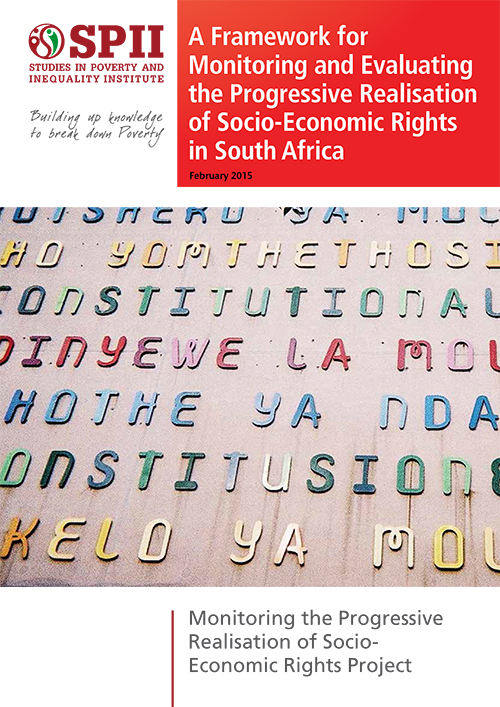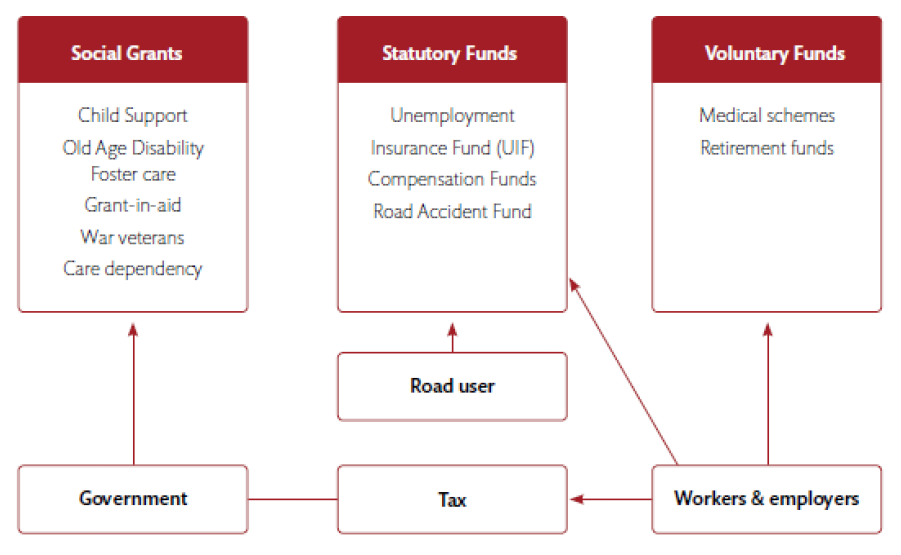A Framework for Monitoring SERs
A Framework for Monitoring and Evaluating the Progressive Realisation of Socio-Economic Rights in South Africa
An analysis of the various judicial and legislative measures and reporting mechanisms and tools used in South Africa to address and monitor SERs highlights their various limitations or shortcomings and points towards the need for a comprehensive monitoring tool which can be applied across all rights.
SPII, with the support of Ford Foundation and the endorsement of the SAHRC, has developed a methodology for monitoring and evaluating the performance of government and the realisation of SERs that is based on a combination of policy (step 1) and budget (step 2) analysis, and the development of statistical indicators for each of the rights (step 3). This involves unpacking the content of these rights and the obligations they impose on government, evaluating the extent to which government policies and budget allocations adequately address these obligations, and measuring the enjoyment of rights by people on the ground.
Distinguishing features of the tool are firstly, its programmatic long term approach to monitoring with the overall aim of guiding policy and the implementation of SERs, and secondly, the emphasis on quantitative measures that are well suited to mapping trends and patterns over time, but remain largely absent in the monitoring process of SERs in South Africa.
Gap Analysis Report and Performance Monitoring Framework
Studies in Poverty and Inequality Institute (SPII) has for several years been undertaking innovative analysis on the progressive realisation of constitutionally enshrined socio-economic rights in South Africa. In April 2015, the South African government ratified the International Covenant on Economic, Social and Cultural Rights (ICESCR). The ratification of the ICESCR provides new opportunities for citizens and the government to engage in dialogue and actions to enhance the promotion, protection and realisation of socio-economic and cultural rights in South Africa. Over the past year, the SAHRC, with the assistance of SPII, has undertaken numerous activities to assist the state and non-state actors to take the necessary steps to implement this treaty, which would include the completion of an Initial Report to the Committee on Economic, Social and Cultural Rights (CESCR) on its implementation of the Covenant by April 2017.













